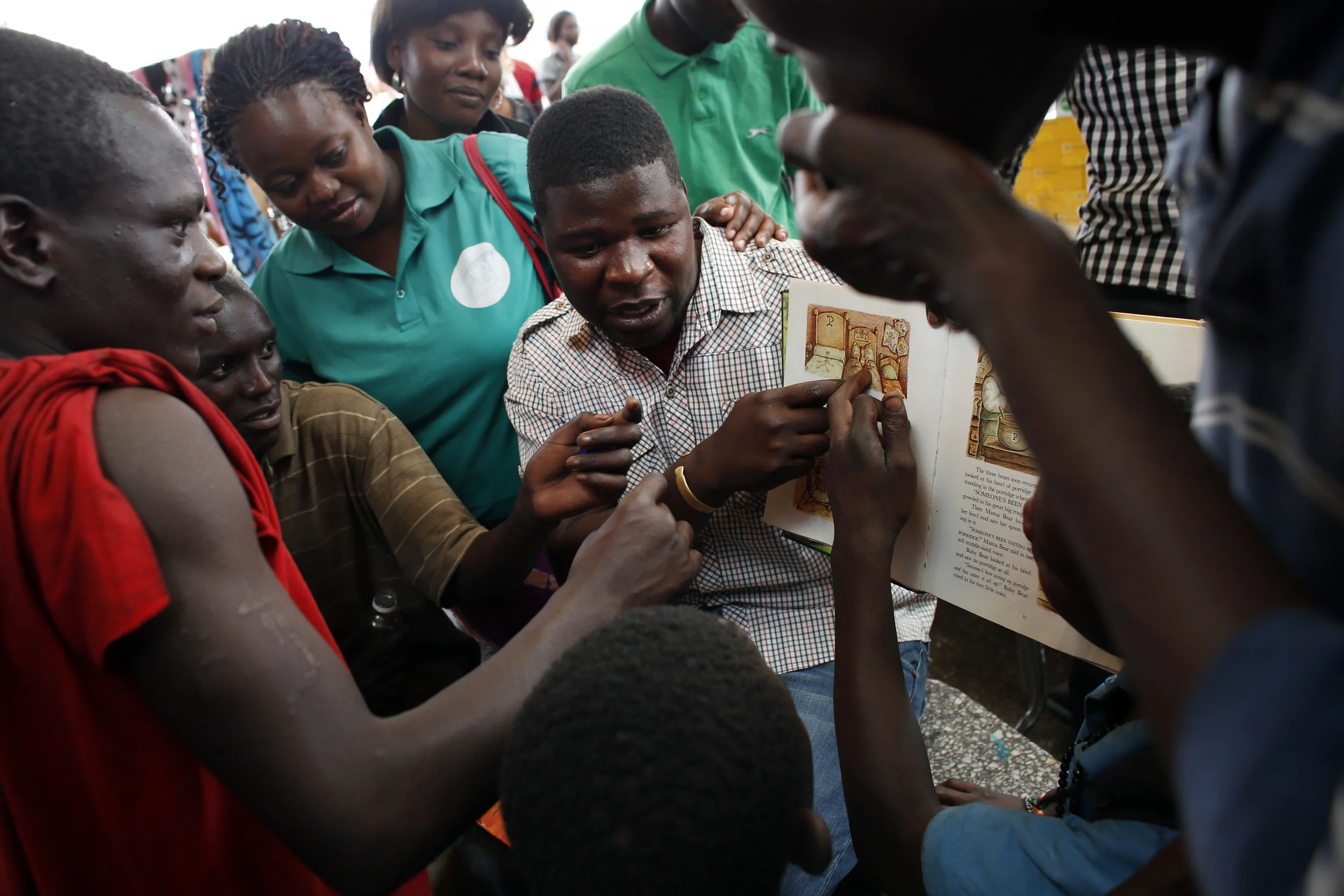Keeping Girls in Secondary School and AIDS-free
Public libraries are a unique gateway for linking girls at risk of HIV infection to information and services that empower them to develop life skills, prevent HIV, and stay in school. One Challenge winner in Zambia will establish new mentoring programs in public libraries to tackle discriminatory gender norms, provide health education, and foster girls’ resilience and determination to succeed. Lubuto's solution highlighted on the DREAMS website
Lubuto Library Partners was announced as one of the 56 winners of the DREAMS Innovation Challenge at the International AIDS Conference in Durban, South Africa in July 2016. The DREAMS Innovation Challenge—an $85 million investment funded by the United States President's Emergency Plan for AIDS Relief (PEPFAR), Johnson & Johnson and ViiV Healthcare—aims to accelerate progress towards the DREAMS target of achieving a 40% reduction in new HIV infections among adolescent girls and young women in the highest-burden areas of 10 sub-Saharan African countries by the end of 2017. Lubuto's approach under DREAMS recognizes that keeping girls in school is not enough to prevent HIV; girls' success requires knowledge and skills and the determination to succeed. Lubuto's DREAMS programs are designed to increase girls' resilience and self-confidence while reducing sexual risk. JSI Research & Training Institute, Inc. is the Funds Manager for this award.
The Impact of Lubuto's DREAMS Programs
Essays written for International Day of the Girl by Participants of Lubuto's DREAMS program
Lubuto DREAMS Programs
Scholarship program
Lubuto has supported 56 adolescent girls and young women with full secondary school scholarship support through a crowdsourced fundraising platform established under DREAMS. These comprehensive scholarships included tuition, books, uniforms, school supplies, feminine hygiene products and tutoring.
role-model mentoring
Lubuto's role-model mentoring program for adolescent girls and young women between the ages of 15 and 24 that focuses on overcoming discriminatory gender norms, equipping girls with HIV and sexual and reproductive health information and access to services, and fostering girls' resilience and determination to succeed. Girls complete eight week programs consisting of both large-group sessions and small-group meetings with young female volunteers who act as role model mentors, providing girls with one-on-one encouragement and support. The mentoring program takes girls on horizon-broadening field trips to cultural and educational destinations around Lusaka where they learn from female leaders. Recent field trip destinations have included Parliament, the University of Zambia and and the Information Resource Center at the American Embassy. Each cohort features two sessions for parents/guardians of enrolled girls that focus on parent-child communicator on sexual health topics. A separate mentoring program for boys focuses on sexual and reproductive health knowledge and the promotion of equitable gender norms.
Health Information and Referral Services
Through Lubuto Libraries, children and youth of all ages and backgrounds are offered free, confidential access to unbiased sexual and reproductive health information and referral services. Under DREAMS, Lubuto has expanded its 4,000+ volume collections to include a range of high-quality international titles focused on sexual and reproductive health, female leadership, HIV prevention, gender-based violence prevention and girls' education. Children and youth also have free access to internet in Lubuto Libraries, with a user-friendly internet portal available to help them locate and access quality online informational resources, including health materials. Staff provide referrals for HIV testing, voluntary male medical circumcision, post-gender-based violence care and social services.
Family Literacy
The objective of the Family Literacy program is to provide foundational literacy instruction to young mothers aged 15-24, and to provide enriching early childhood programs to their children aged 0-6. The program meets 4-6 times per week.
The current cohort has 80+ mothers enrolled. The majority of these mothers dropped out of secondary school when they became pregnant and were unable to re-enter. Our target is to reach 500+ young mothers through the Family Literacy program—and to enable as many as possible to re-enroll in secondary school or another formal educational program.
While the young mothers participate in the foundational adult literacy program, their young children participate in an early childhood education program based on the Zambian national syllabus. The early childhood program utilizes books, games, songs, rhymes and play to engage children in early learning, and is inclusive of children with disabilities (both physical and intellectual).
Platform for Sexual and reproductive health Programming and Research
Many public health and research organizations struggle to reach out-of-school children and other vulnerable children in studies or programs that take place through schools and clinics. There is a demonstrated need for programming sites that allow public health organizations access to the most vulnerable groups of adolescent girls and young women, just as there is value in connecting adolescent girls and young women to new, research-driven programs and informational services. Lubuto has coordinated with Afya Mzuri, Intrahealth, Catholic Medical Mission Board, Latkings Outreach, and World Vision's GBV One-Stop Center to offer a broad range of health-focused programming through Lubuto Libraries—which are open to all and serve many marginalized groups.











